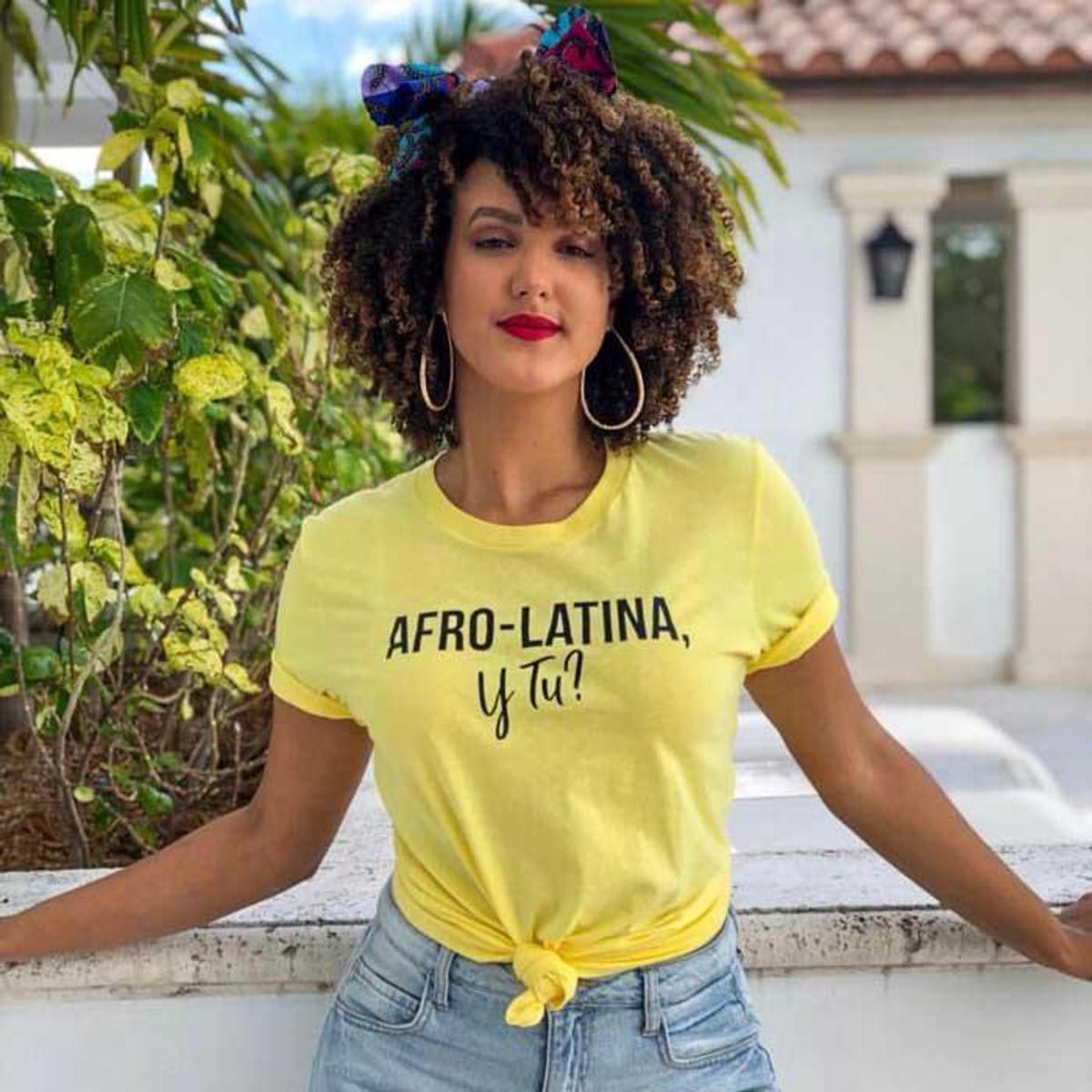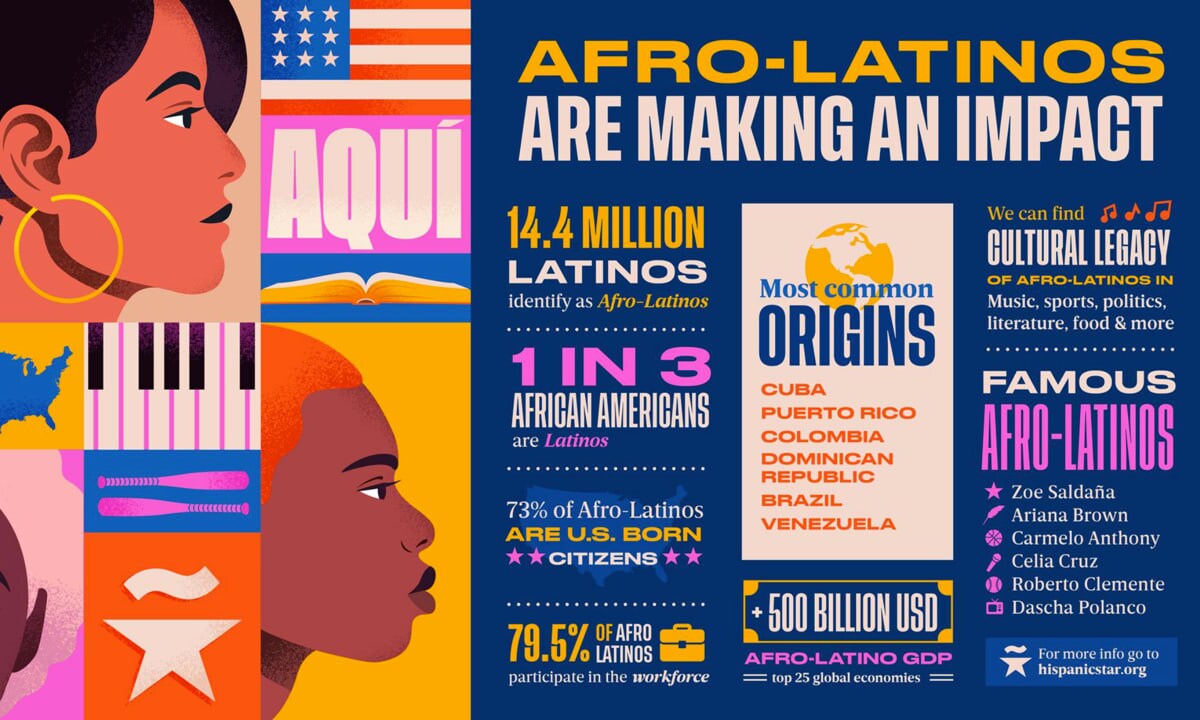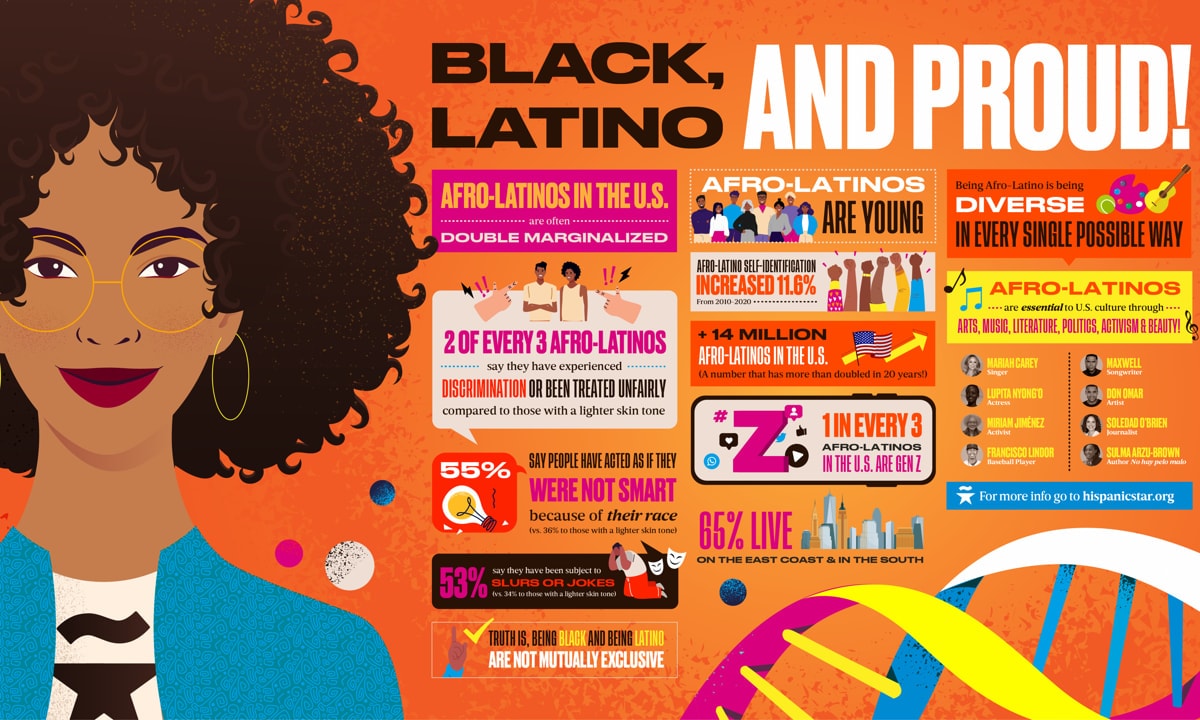Latinos are not a monolith; therefore, identifying themselves based on their race is more challenging than anyone could think of. According to the Pew Research Center, the Latinx community and many Hispanics tie their identity to their ancestral countries or indigenous roots.
Latinos and Hispanics know how complex can be race and identity. According to the nonpartisan American think tank survey, Latino adults show that one-quarter of all U.S. Latinos self-identify as Afro-Latino, Afro-Caribbean, or of African descent with roots in Latin America.
The research also revealed that this is the first time a survey in the U.S. has asked the Latino population if they considered themselves Afro-Latino. The Pew Research Center informed that only 18% of Afro-Latinos identified their race or one of their races as black. And a higher group of Afro-Latinos identified as white alone or white in combination with another race (39%).
An interesting fact about the findings is that most Latin American countries have just begun to collect official statistics on ethnicity or race. In 2015, Mexico allowed people to identify as black or Afro-Mexican for the first time. During their survey, 1.4 million Mexicans self-identified as black or African descent.
In Brazil, about half of the population is of African descent; in Cuba, black people make up a third of that country’s population. In the Dominican Republic, a quarter to nearly 90% of the population is black, even if they identify as “Indio.”
The Afro-Latinx community is an undeniable force for progress and has made and continues making an impact in this beautiful country. Besides trying to understand more about their background, according to Hispanic Star, 77% of Latinos and Hispanics are not aware of their contributions to the nation.
There is still a long way to go and a critical gap that needs to be addressed. Representation, disparity, and equal pay affect every single one of us. Still, we continue working hard and walking on the right track.
,type=downsize)








